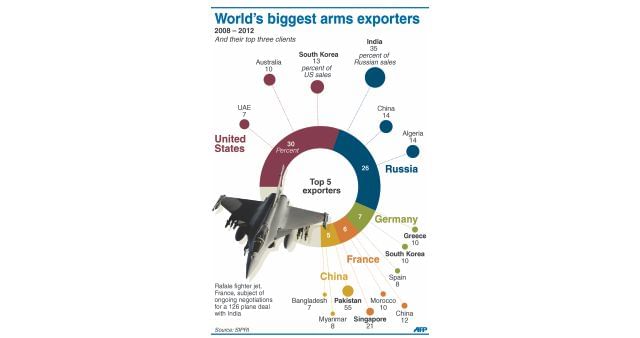No consensus on UN arms treaty
Iran, North Korea and Syria on Thursday held up agreement on the first global treaty on the $80 billion a year conventional arms trade.
The three states twice blocked moves to adopt a treaty by consensus at the end of 10 days of arduous talks at the UN headquarters.
A coalition of countries from around the world said they would now take the treaty straight to the 193-member UN General Assembly next week for approval. It can be passed with a two thirds majority which is virtually assured.
The move by Iran, North Korea and Syria, all facing sanctions or international reprimands for their weapons programs or trading, caused widespread anger at the conference.
"This is not a failure, today is success deferred and deferred by not very long," said Britain's chief negotiator Jo Adamson.
"A good strong treaty has been blocked by the DPRK (North Korea), the Islamic Republic of Iran and Syria but most people in the world want regulation and those are the voices that need to be heard," she added.
The Amnesty International rights group called the blocking move "deeply cynical". "The world has been held hostage by three states," said Anna MacDonald, Oxfam's arms control specialist.
All of the major arms producer -- the United States, Russia, Germany, France, China and Britain -- were ready to agree the treaty for which negotiations started in 2006.
The first major arms accord since the 1996 Comprehensive Nuclear Test Ban Treaty would cover tanks, armored combat vehicles, large-caliber artillery systems, combat aircraft, attack helicopters, warships, missiles and missile launchers, as well as small arms and light arms.
It would aim to force countries to set up national controls on arms exports. They would also have to assess whether a weapon could be used for genocide, war crimes or by terrorists or organized crime gangs before it is sold.


 For all latest news, follow The Daily Star's Google News channel.
For all latest news, follow The Daily Star's Google News channel. 



Comments